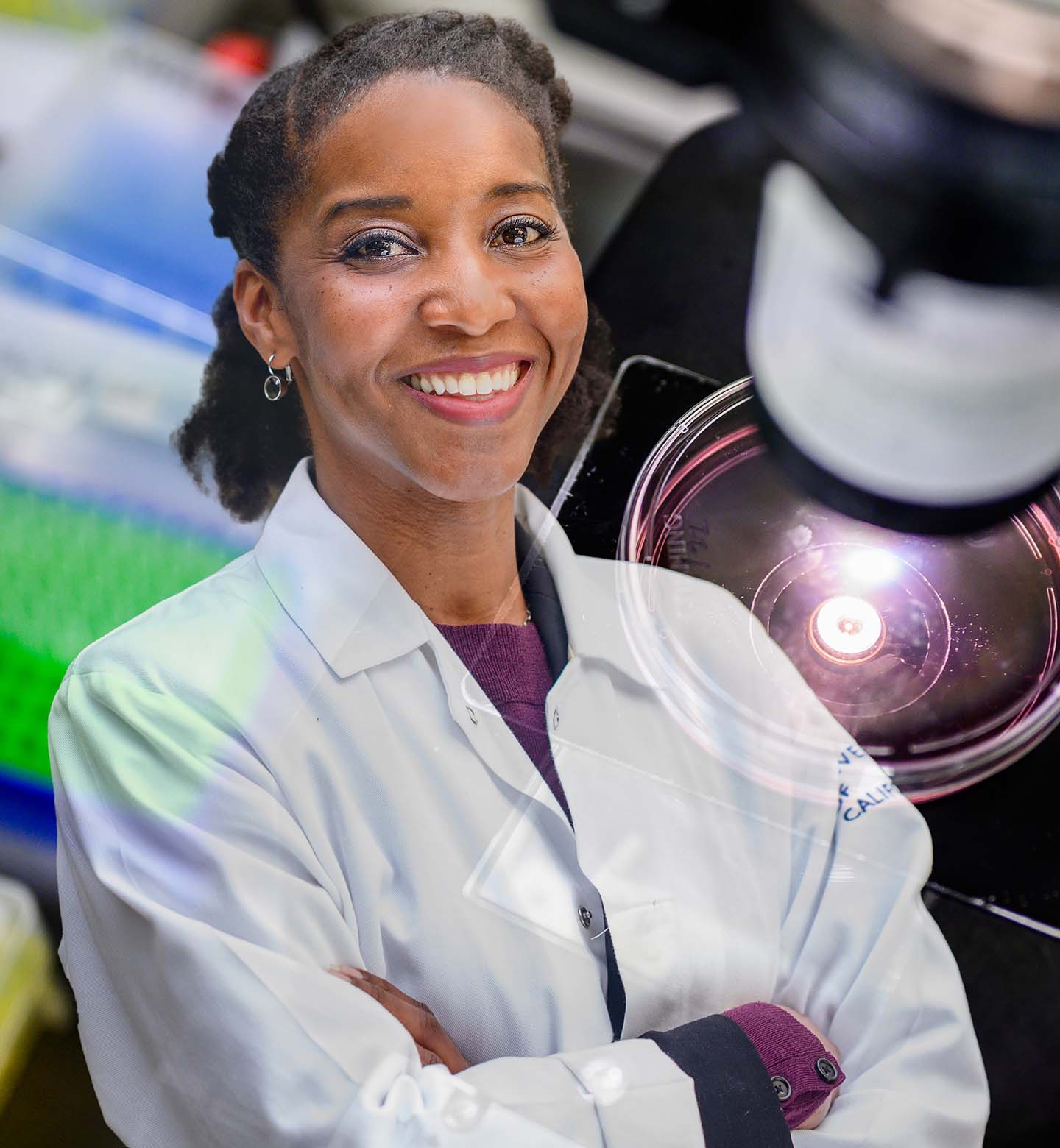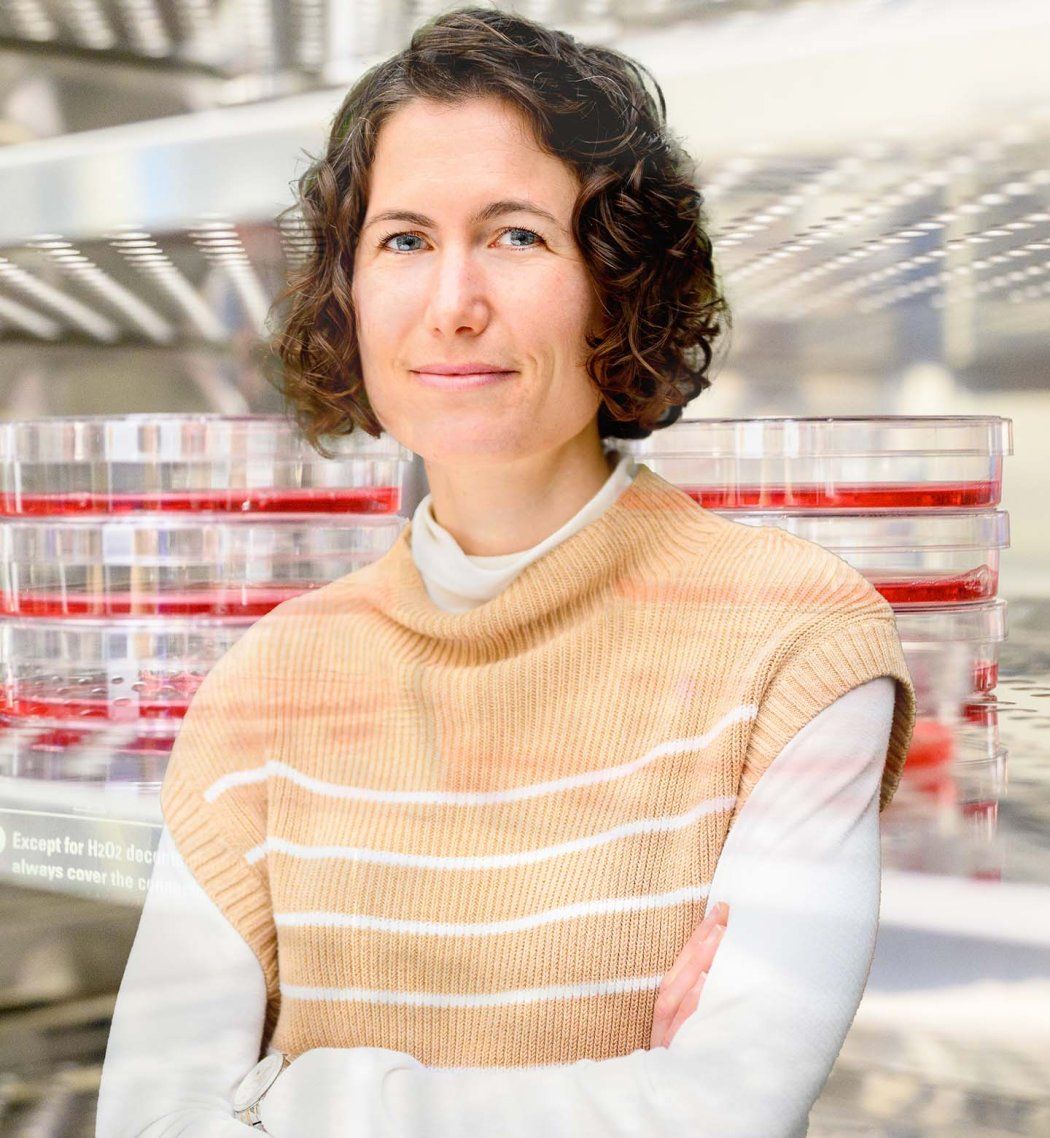This story is one in a series marking International Women and Girls in Science Day. Join us as we celebrate some laboratory leaders taking research to new heights.
A funny thing happened on Angela Phillips’ way to become an astronaut and travel to space. She was captivated by viral evolution. Now, she leads research that could help predict future viruses and the antibodies we might use to treat them.
“I originally wanted to become an astronaut, and I went to the U.S. Air Force Academy to pursue that goal,” says Phillips. She spent a year studying engineering as a cadet but decided to return to her first love: scientific research.
She earned a biochemistry degree from the University of Florida, becoming the first in her family to graduate from college, and then earned a doctoral degree from MIT. Phillips, who is now an assistant professor in the Department of Microbiology and Immunology at UC San Francisco, leads the Phillips Lab. Her team studies the evolution of viral proteins and antibodies: think influenza, HIV, and the coronavirus that causes COVID-19.
The rapid spread of the omicron variant of the coronavirus is one example of why this research is so important, Phillips says.
“Omicron highlights how much we don’t know about these viruses and their proteins,” she says. Omicron spread faster than earlier variants and quickly became the dominant strain, prompting work to update the vaccine to slow the strain’s spread. Phillips’ research could help uncover why a variant like omicron is more likely to spread rapidly.
“When proteins evolve, they acquire mutations. We try to understand what these mutations do to proteins and how that might affect whether a particular viral variant might become dominant,” Phillips says. “We also try to understand how our immune system responds to these different viruses and protects us with antibodies against rapidly evolving pathogens.”
At the heart of her team’s work is the mass collection of data. They are creating a library of information that she believes will be useful for building predictive models of viral evolution and corresponding antibody responses – including predicting which viral variants are likely to become prevalent.
“Currently, we’re really good at measuring specific things about viruses, such as whether they can evade antibodies or bind to different host cell receptors,” she says. “There are many other properties that determine whether a viral variant will dominate, though. We don’t yet have a good way to measure that. Once we have that information, we can better predict which viruses are likely to dominate and become concerning, and we can adjust vaccination strategies accordingly.”

NEXT UP:
Breaking the Code on Dangerous Lung Inflammation
Catera Wilder, PhD, studies the potentially harmful effects of lung cells’ immune responses to airborne viruses.
